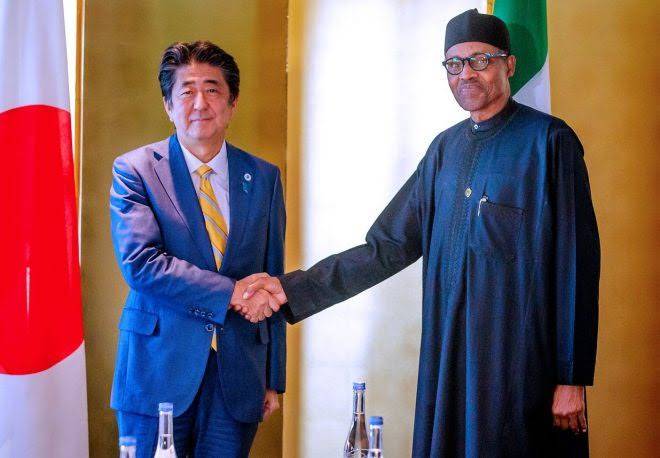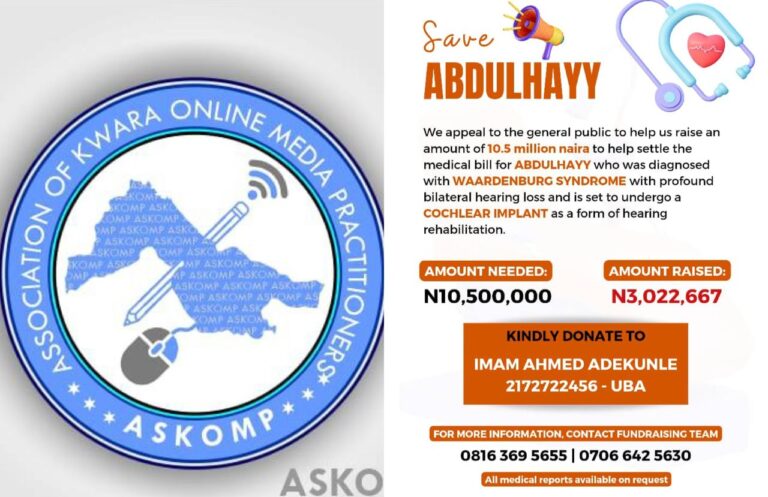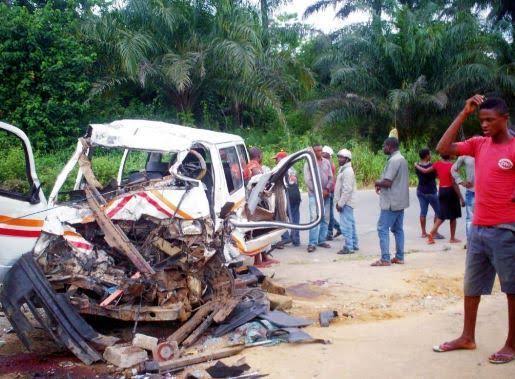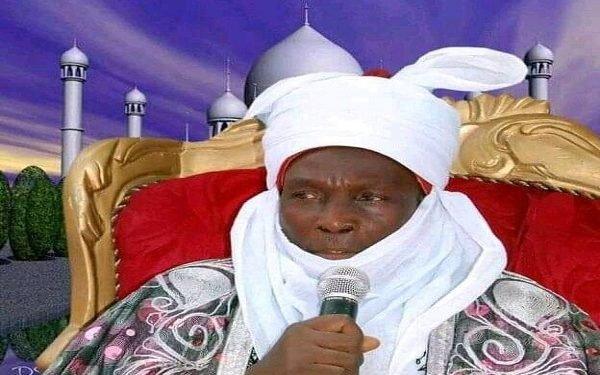COLUMN| The Plateau’ of beauty, blood and betrayals
By Abdulqadir M. Habeeb
Where the Sky Rests Gently: They call it “The Home of Peace and Tourism,” but I think even that feels like an understatement. Plateau State is more than a slogan or a point on a map, it’s a place where time softens, where the wind hums through pines and the earth tastes of fruitfulness. The land itself seems to carry an unspoken promise of peace, its rolling hills and distant ridges holding secrets that are whispered only to those willing to listen.
In Jos, the air is a gentle contradiction. Crisp, cool, sometimes rebellious in harmattan, yet never cruel. It carries a scent of earth and eucalyptus, tinged with the occasional perfume of wildflowers that grow without invitation. Unlike the clamor of Lagos heat or the dusty choke of Abuja’s midday glare, It is neither furnace-ic hot like sokoto or Kotonkarfe. Jos wraps you in calm like an old friend draping a shawl across your shoulders.
Fruits? Plateau doesn’t just grow them, it cradles them. Strawberries from Vom, apples from Gyel, plums, pears, even grapes that ripple with dew in Kuru and Riyom. If exotic fruits had a hometown in Nigeria, it would spell its address in Plateau. The oranges taste like childhood; the pineapples remind you of secrets whispered under trees. It’s as if the very soil here has a special way of nurturing life, one that cannot be found elsewhere in the country.
The vegetation? Rich, textured, and endlessly alive. From the tidy rows of cabbage and Irish potato farms in Bokkos to the pine-lined roads near the Jos Museum, Plateau’s landscape is a painter’s palette of greens. The grasses sway like they’re listening to something only they can hear, their movements soft, almost reverent. It’s the kind of beauty that makes you believe that the earth, in its most natural state, is an artist painting with colors you’ve never seen before.
And then there are the birds.
Have you heard the Ibadan Malimbe? Not many have. It’s shy, rare, with a call that flutters like poetry across the cold Plateau air. You might catch it in Lamingo or near the forest edges of the Wildlife Park, among sunbirds, waxbills, and the seasonal drift of migratory starlings. Up here, the sky isn’t just blue, it’s musical. Each call, each flutter, is part of a larger symphony, as if the land and sky are always in conversation.
It helps that Plateau isn’t just rich in scenery, it’s a quiet seat of research and resilience. The National Veterinary Research Institute (NVRI) in Vom is one of Nigeria’s oldest scientific institutions. There, behind unassuming gates, people work daily to protect both livestock and wildlife, preserving delicate balances and ensuring food safety. Not far off, in Kuru, the National Root Crops Research Institute explores improved varieties of Irish potatoes, sweet potatoes, and other root staples that keep kitchens and markets humming across Nigeria.
Plateau isn’t accidental in its abundance. It’s deliberate. Thoughtful. Scientific. The weather, cool mornings, temperate afternoons doesn’t just pamper visitors, it nurtures crops, fosters research, and inspires conservation. Wheat grows. Grapes cling. Even apples, uncommon in most of the country, find a home in its soil.
Miango. Riyom. Pankshin. Langtang. Kuru. Vom. Each name is more than a location. Each is a story, a dish, a dance, a discovery. And somewhere between terraced farms and misty mornings, you realize, this land does not just grow crops, it grows peace.
Not perfect, no. Nowhere is. But Plateau holds its own in this wild, uneven country. And if you ever need a place to pause, to feel again, to taste nature the way it was meant to be; cool, fresh, soft around the edges you’ll find it here, where the sky rests gently.
But for decades now, that same Plateau has also carried the scent of blood, of smouldering villages, mass graves, and unending funerals.
Beneath its breathtaking beauty lies a tragic paradox: a landscape of environmental serenity marred by communal upheavals and a recurring cycle of bloodbath and tears.
For decades, she has swung between moments of deceptive calm and explosions of violence. Communities once known for their shared markets and mingled accents now echo with gunfire, machete wounds, funeral songs, and the wails of survivors.
This is not just a tale of broken peace. It is a story of betrayal; by governments that failed, by justice that never came, and by a nation that moves on too quickly.
Plateau State is a land of golden light. On Shere Hills, dusk spills like molten honey over the escarpment, gilding pine forests and terraced farms. Jos greets visitors with air crisp enough to slice, scented with eucalyptus and wildflowers. Here, strawberries from Vom burst with sweetness, apples from Gyel defy Nigeria’s equatorial heat, and the soil seems to hum with generosity. For decades, this “Home of Peace” has been a sanctuary a place where the sky rests gently, as if cradling the world.
But there is another Plateau. A Plateau where villages smolder, mass graves yawn, and survivors clutch fragments of lives shattered by machetes and midnight raids. A Plateau where peace is not a promise but a flickering mirage.
The Fracturing
The cracks began in 1994. In Jos North, a dispute over leadership fractured communities into “indigenes” and “settlers,” igniting a cycle of retaliation. By 2001, the city’s cosmopolitan fabric unraveled entirely. A political appointment lit a fuse: churches and mosques burned, mobs roamed, and an estimated 1,000 lives vanished into smoke (Human Rights Watch, 2001). Jos never fully healed.
Then came Yelwa in 2004; a massacre so brutal it seared itself into Nigeria’s conscience. Over 600 souls, mostly women and children, were slaughtered in reprisal attacks. Survivors spoke of unthinkable horrors. A state of emergency followed, but justice never did.
The years since have blurred into a macabre rhythm: 2008, 2010, 2018, 2024. Villages like Dogo Nahawa and Mangu became synonyms for bloodshed. In 2024, armed men stormed Bokkos, torching homes as families slept. Survivors blamed “herdsmen,” but the truth is knottier.
Desertification, gnawing at Nigeria’s north, has displaced herders and farmers alike, turning pasture into battlegrounds. Politicians exploit indigeneity laws; security forces arrive too late; impunity reigns.
Beneath the Soil
Plateau’s tragedy is not inevitable. It is cultivated by a state that abandons its people, by climate change nibbling at livelihoods, by a justice system where fewer than 2% of violence cases end in conviction (Nigerian Bar Association, 2023). Yet even here, resilience sprouts. In Barkin Ladi, Muslim and Christian women rebuild markets side by side. In Jos, youths stage plays about forgiveness. At Miango Peace Farm, herders and farmers share land, defying the script of hate.
The Way Forward
Healing Plateau demands more than fleeting outrage. It requires land reforms that honor both farmer and herder, not political warlords. It needs special courts to try killers, not endless commissions. It cries for investment in drought-resistant crops and water systems to quench the thirst of a warming Sahel. Most of all, it needs Nigerians to see Plateau not as a distant tragedy, but as a mirror reflecting our shared failures and potential.
A Sky That Still Rests
Plateau’s soil is stained, but its soul endures. On quiet mornings, the Ibadan Malimbe still trills in Lamingo’s forests. The wind still rustles through Riyom’s pines. And somewhere, a farmer in Gyel tends to apple saplings, praying they’ll outlive the chaos.
For Plateau to breathe again, we must plant justice as diligently as crops. Only then will the sky rest gently not as a requiem, but a lullaby.
The General Who Never Came Home: Idris Alkali’s Murder
One of the most haunting cases to pierce national consciousness came in 2018, when the body of Major General Idris Alkali (rtd), a respected military officer, was found in a mining pond in Du, Jos South.
He had gone missing while traveling from Abuja to Bauchi. For weeks, there was confusion. Then came the discovery of his car in a pond, alongside several other vehicles, suggesting the area had become a graveyard of secrets.
Investigations revealed that a mob had attacked and killed him, allegedly in retaliation for earlier violence in the area. His death sparked outrage. Protests erupted. Military raids followed.
Communities were accused. The town was sealed off. In the end, the tragedy only deepened the already wide chasm of suspicion and grief.
2024–2025: A New Season of Massacres
Just when it seemed the violence had waned, fresh horrors emerged. In early 2024 and again in 2025, Mangu, Bokkos, and Bassa local government areas became killing fields. Hundreds were murdered in coordinated attacks on farming communities, most of them women, children, and the elderly.
Entire villages were wiped out overnight. Survivors described armed herdsmen storming in during the night, setting homes ablaze, and killing indiscriminately. Mass graves have become a norm. National mourning is fleeting.
Condemnations are routine. Justice remains slow or absent.
In some cases, displaced communities returned to rebuild, only to be attacked again. There is no lasting peace, only brief silences between killings.
Beneath the Violence: A Complex Web
What fuels this endless cycle? Religion and ethnicity play a role, but deeper currents run beneath. Land disputes, historical grievances, broken justice systems, and political manipulation all feed the conflict.
Climate change has worsened herder-farmer clashes, as desertification pushes herders southward, leading to new struggles over grazing and farming land.
The state has largely failed. Killings are rarely followed by convictions. Security agents often arrive too late. Commissions of inquiry are set up, but their reports gather dust. Families bury their dead in silence and brace for the next attack.
Glimmers of Hope Amid the Horror
Yet even in this bleak landscape, some still believe in peace. Interfaith coalitions, community peacebuilding programs, and youth-led reconciliation efforts have emerged. In some communities, Muslims and Christians still rebuild markets together. They still share water. They still exchange greetings.
But hope alone is not enough. Plateau needs justice, not just for individuals but for entire communities who have endured decades of violence. Land reforms are needed, along with a redefinition of indigeneity, stronger local governance, and real consequences for those who perpetrate violence.
The Tears Must Stop
Plateau State is a land where nature whispers peace, yet its soil is soaked in the blood of the innocent. For too long, its people have been caught in a storm of silence, impunity, and unending sorrow. Families have buried loved ones in shallow graves. Children have watched their homes burn to the ground. Survivors carry memories too heavy to express.This cannot continue.
Healing begins with justice. The government, at every level, must rise above rhetoric. It must protect lives, prosecute the guilty, and dismantle the machinery of impunity that perpetuates this cycle. No village should have to dig mass graves alone. No community should be abandoned after calling for help.
Security must be proactive, not performative. Investigations must result in convictions. Compensation must be more than empty condolences. True peace requires bold reforms. Land disputes must be resolved equitably. Indigeneity must no longer be weaponized. Dialogue should be encouraged, but so must consequences for those who choose violence.
The people of Plateau deserve more than survival. They deserve to live, to thrive, to hope.
It is time for the state to prove that every Nigerian life matters equally. It is time for Plateau to breathe again, free from the smoke of burning homes and the stench of blood. It is time for the killings to stop and for accountability to begin.
Not just for Plateau. For all of us.
‘In the reckoning of days, the firm-footed remain’
Habeeb, a Tech, Strategy, and Innovations consultant based in Abuja. He keeps a periodic Column here and can be reached via habeebajebor@gmail.com.







